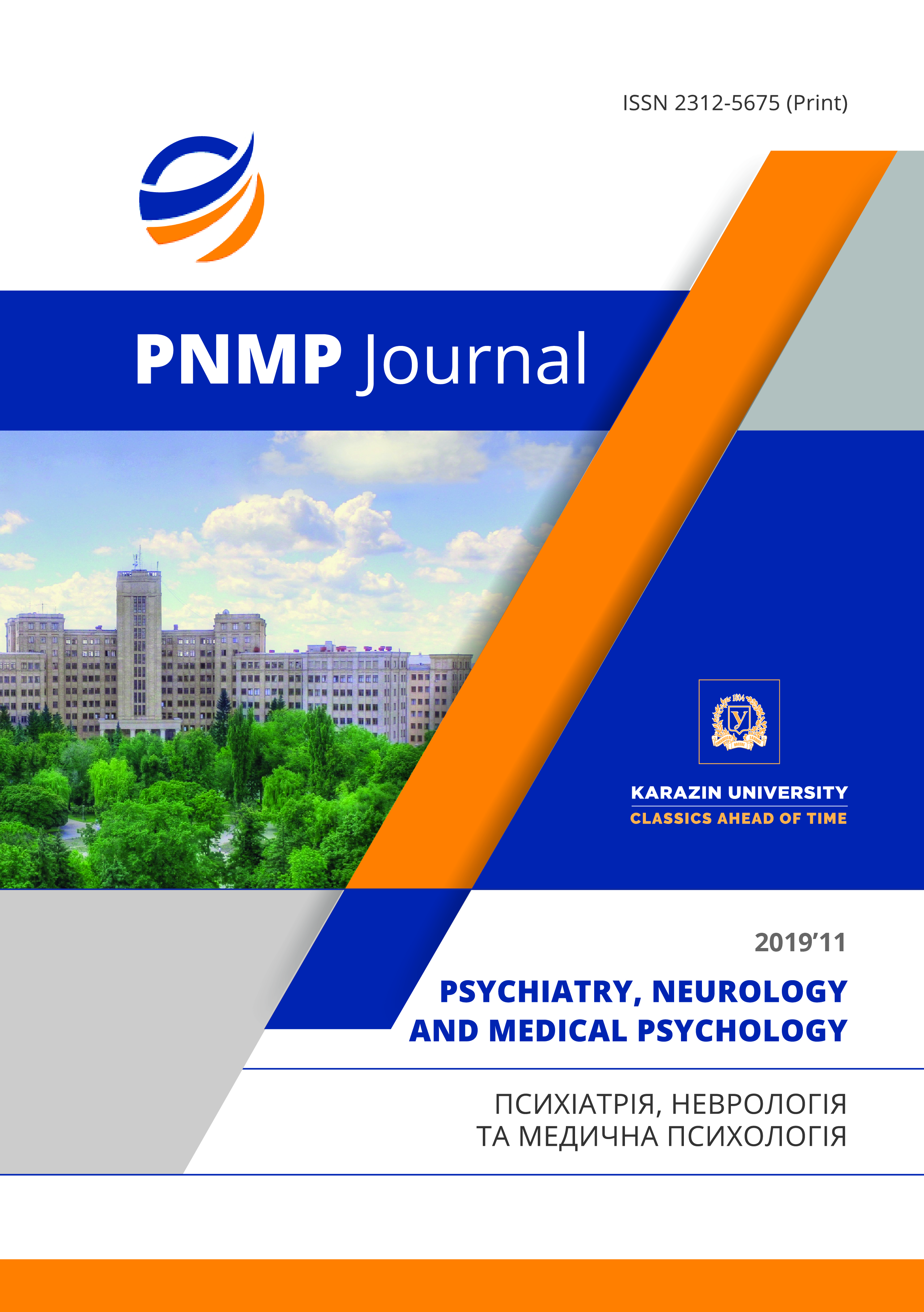Complex post-traumatic stress disorder in participants of the military actions in the operation militarygroups in the view of the eleven edition of the International classification of diseases
Abstract
The introduction of the new concept of complex post-traumatic stress disorder (cPTSD) in the International Classification of Diseases of the 11th Edition deserves attention in a country where active fighting is taking place. The increase in the number of PTSD sufferers among military personnel and civilians on the territory of hostilities increases the likelihood of PTSD occurring among the contingent. At present, we have no experience in the diagnosis of cPTSD. The objective of our study, along with the diagnosis of PTSD symptoms, is to use a quality of life questionnaire to evaluate the symptoms of cPTSD. The result revealed that the level of community and service support was below average, indicating the need to improve community social support. The self-realization of the combatants has a low average level, which further influences the level of adaptation after the end of the service. Physical and psychological well-being are also low, and this indicator to the need for psychological and physical rehabilitation of demobilized soldiers. At the same time, communication with friends and family, performance were at a high enough level, and these are positive factors that influence the adaptation to civilian life.
Summarizing the research, we suggest that in order to organize the help of the combatants more effectively, it is necessary to evaluate, along with a purely psychiatric diagnosis of PTSD, the level of social and physical adaptation of patients with PTSD.
Downloads
References
ICD-11. Implementation or Transition Guide. World Health Organization. 2019. URL: https://icd.who.int/icd11refguide/en/index.html#3.1.0Part3Annexdifferences|part-3-new-in-icd11|c3.
Geoffrey M. Reed, Jared W. Keeley, Tahilia J. Rebello, Michael B. First, Oye Gureje. Clinical utility of ICD‐11 diagnostic guidelines for high‐burden mental disorders: results from mental health settings in 13 countries. World Psychiatry. 2018 Oct; 17(3): 306–315.
Michael B First, Geoffrey M Reed, Steven E Hyman, and Shekhar Saxena. The development of the ICD-11 Clinical Descriptions and Diagnostic Guidelines for Mental and Behavioural Disorders. World Psychiatry. 2015 Feb; 14(1): 82–90.
Complex PTSD: A Starting Guide. 2019. URL: http:// www.depressionalliance.org/cptsd/.
Overview. Post-traumatic sress disorder (PTSD). 2018. URL: https://www.nhs.uk/conditions/post-traumatic-stress-disorder-ptsd/complex.
Eidhof M.B, Djelantik AAAMJ, Klaassens E.R., Kantor V., Rittmansberger D., Sleijpen M., Steenbakkers A., Weindl D., Ter Heide FJJ Complex Posttraumatic Stress Disorder in Patients Exposed to Emotional Neglect and Traumatiс. Latent Class Analysis. J Trauma Stress. 2019 Feb;32(1):23-31. DOI: 10.1002/jts.22363.
Stadnic I. V., Mushkevych M. I. Psychological features of the experience of post-traumatic stress disorder by participants in the area of anti-terrorist operation. Psychology: reality and perspectives. Issue 4, 2015 Collection of scientific works of RDGU: 244-247.[ In Ukr.]

